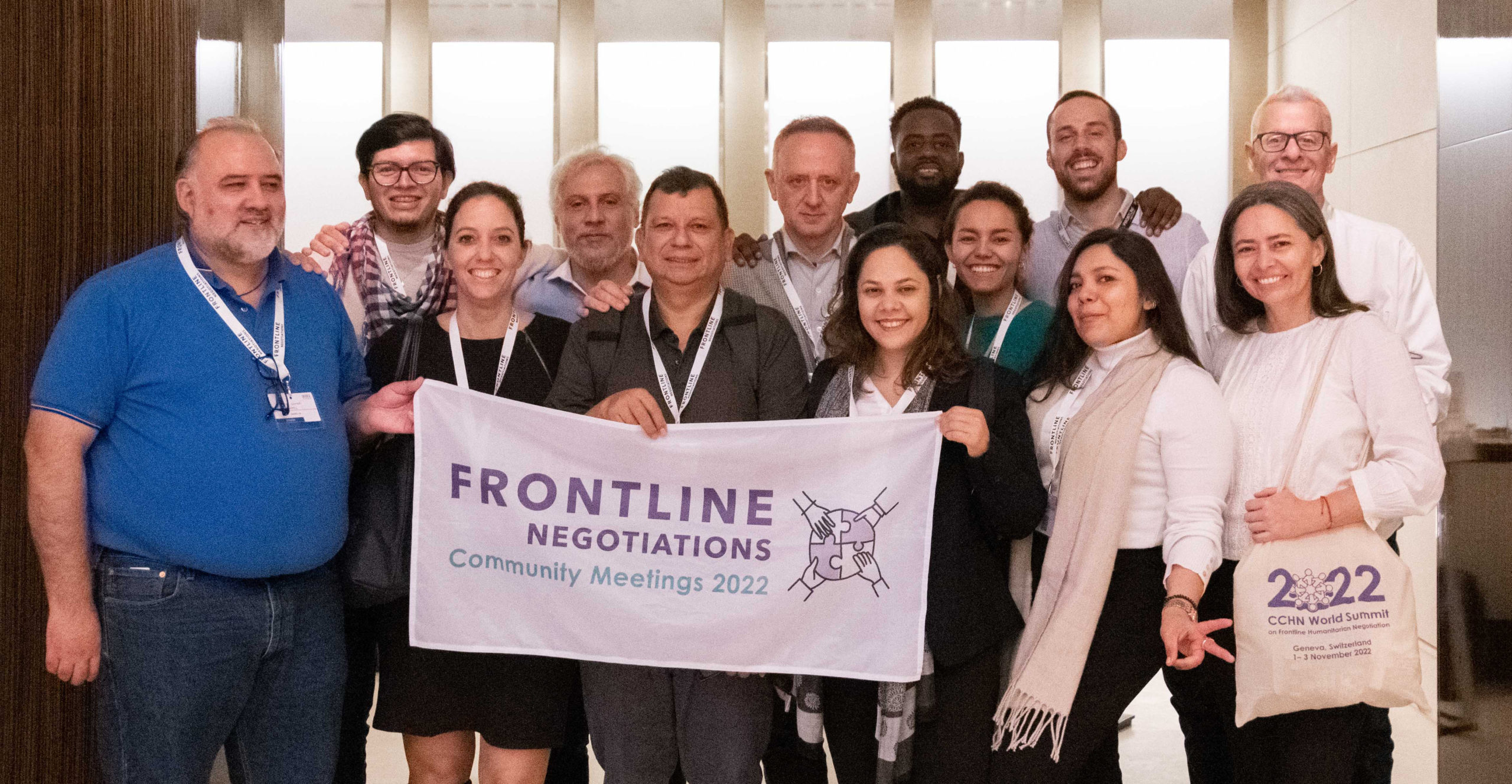


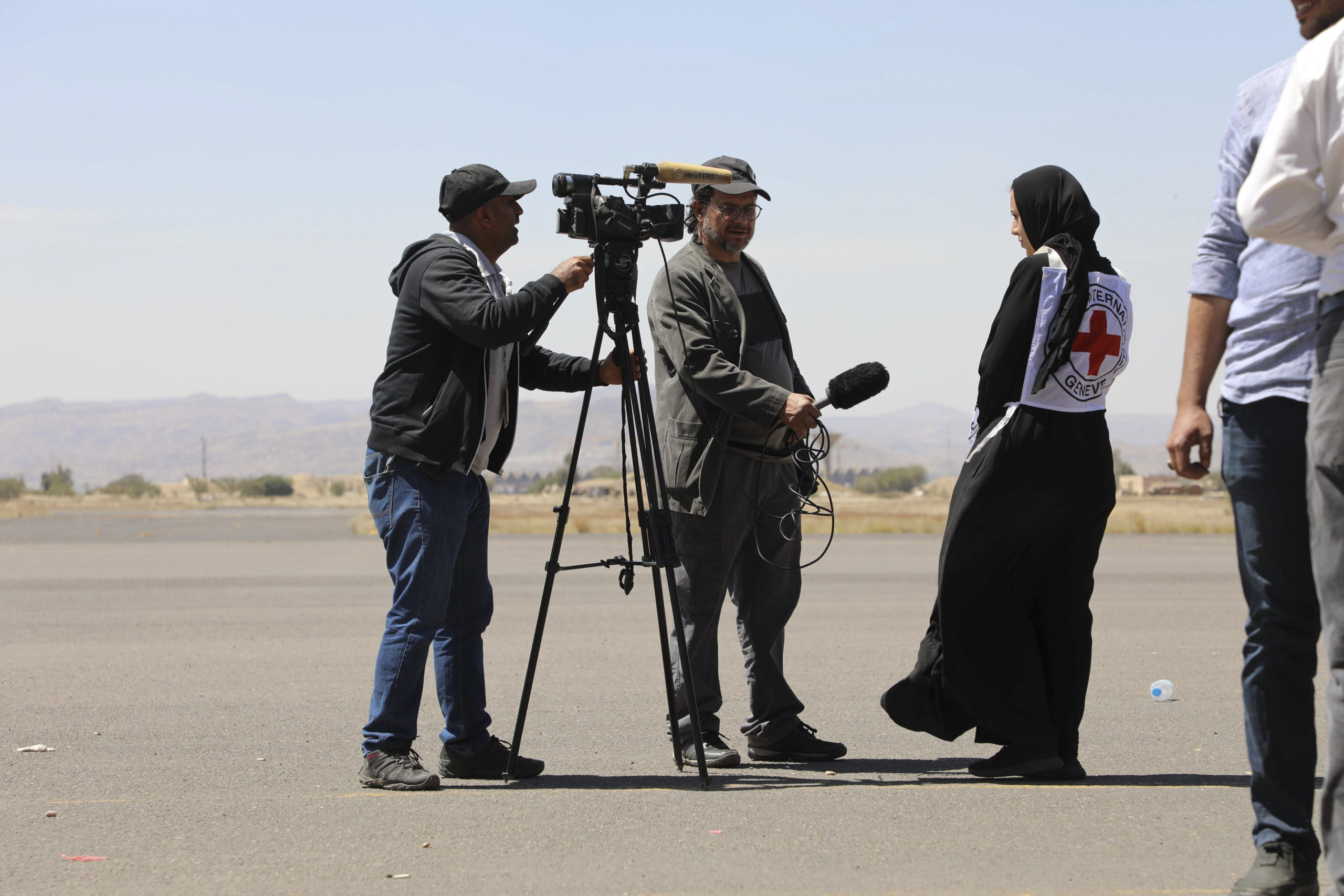
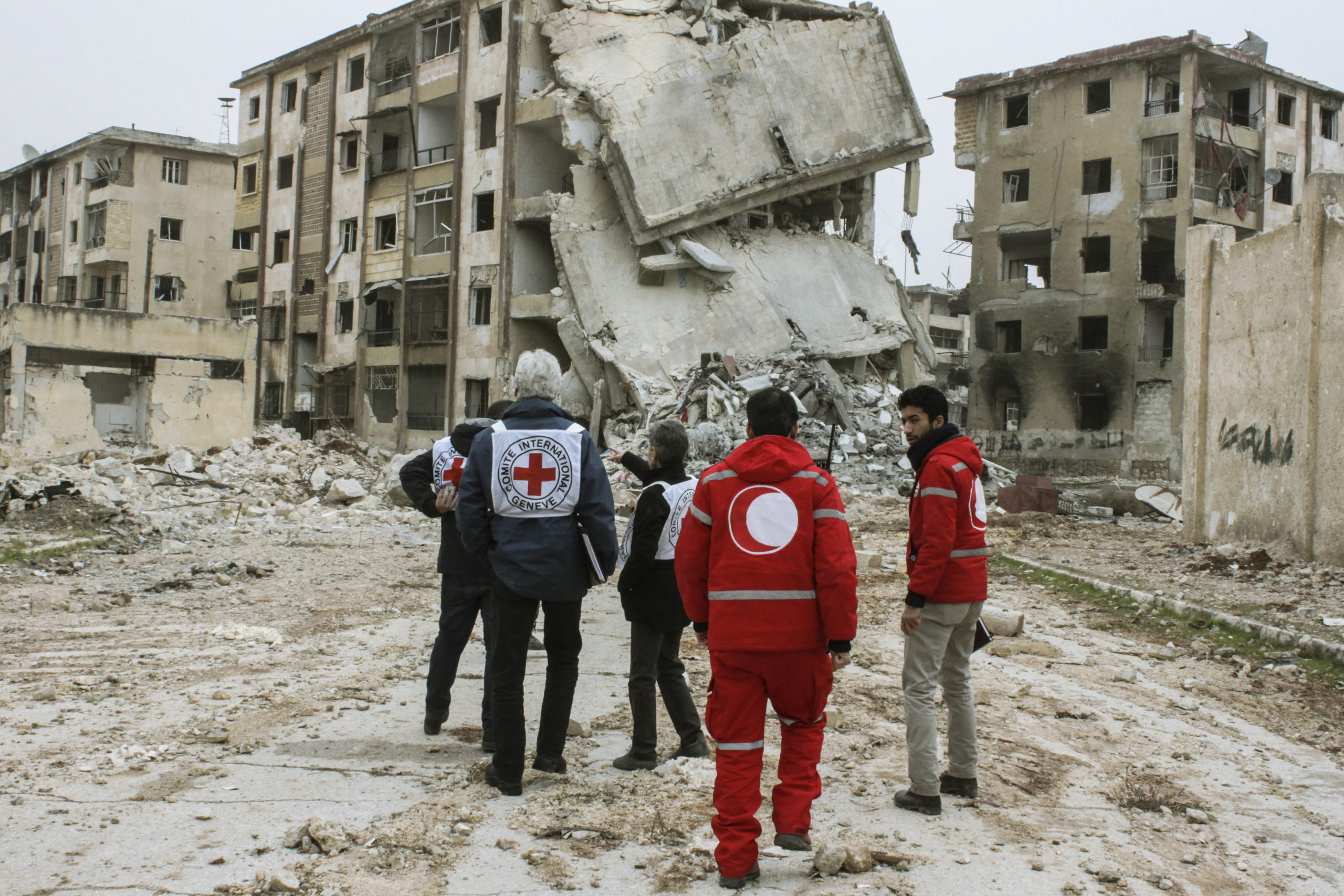
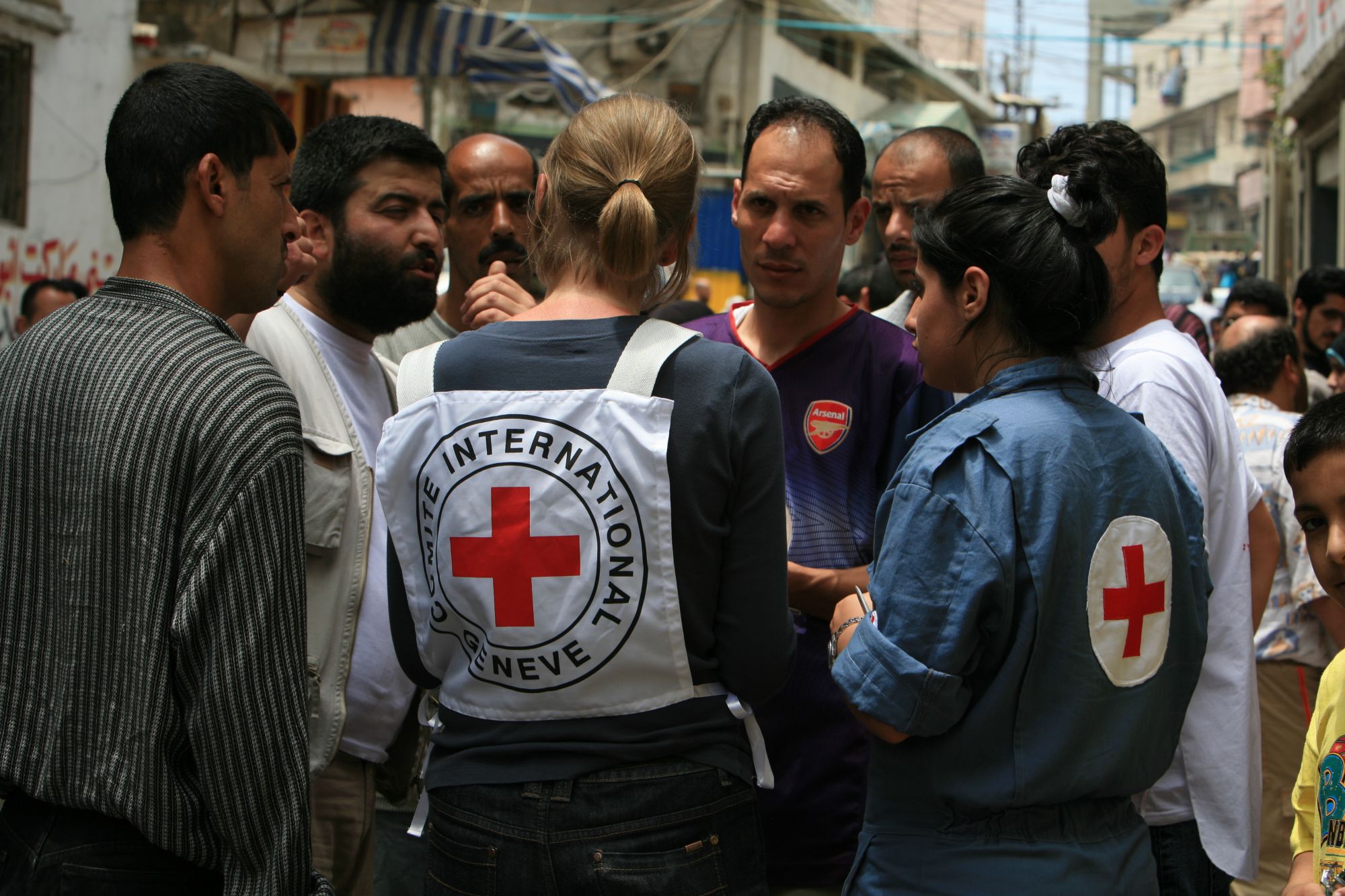
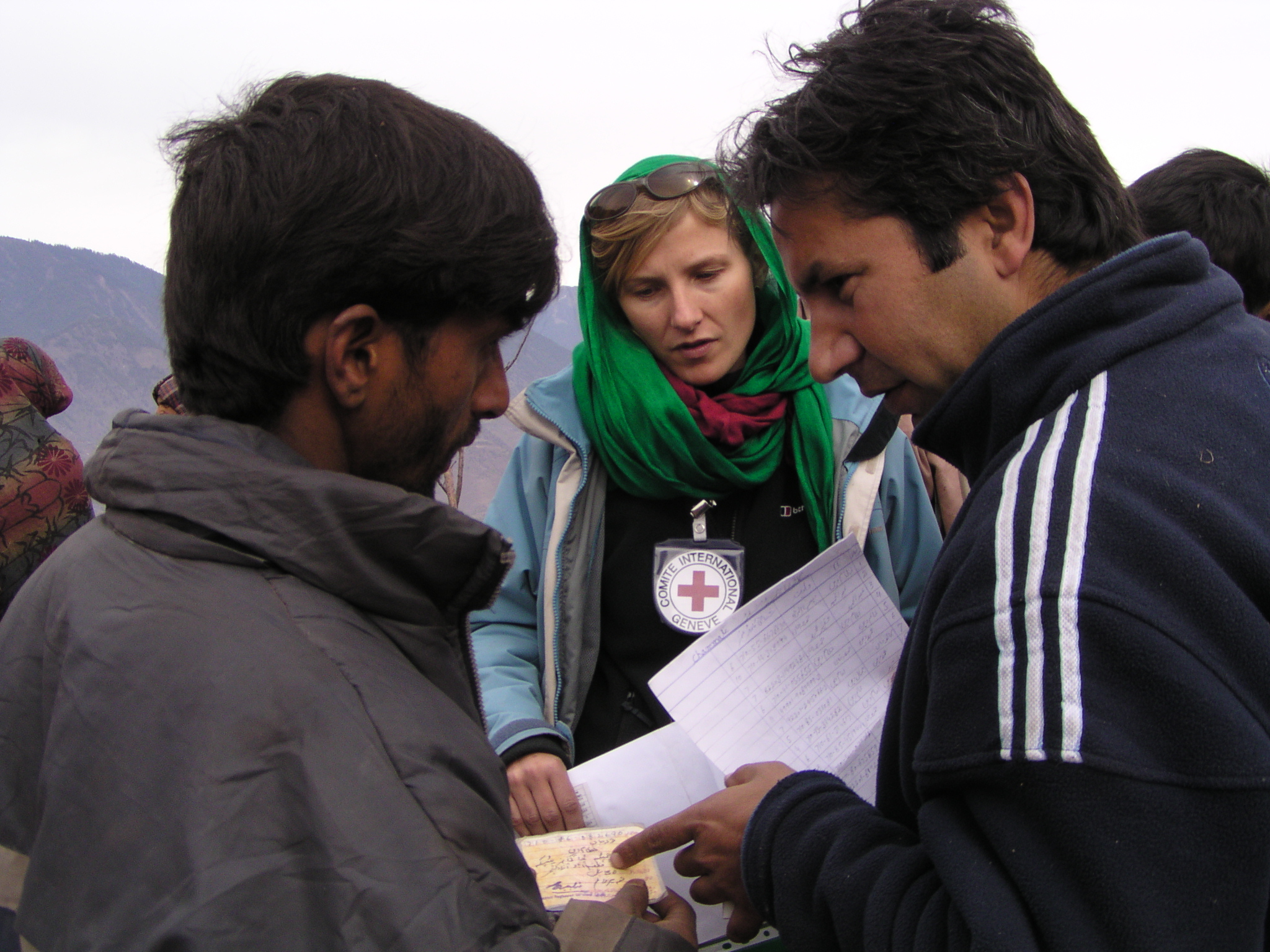
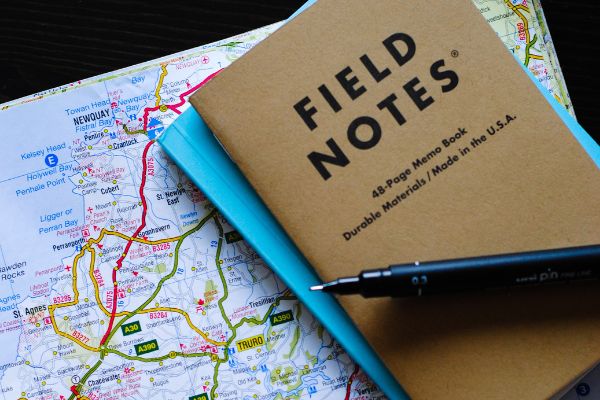
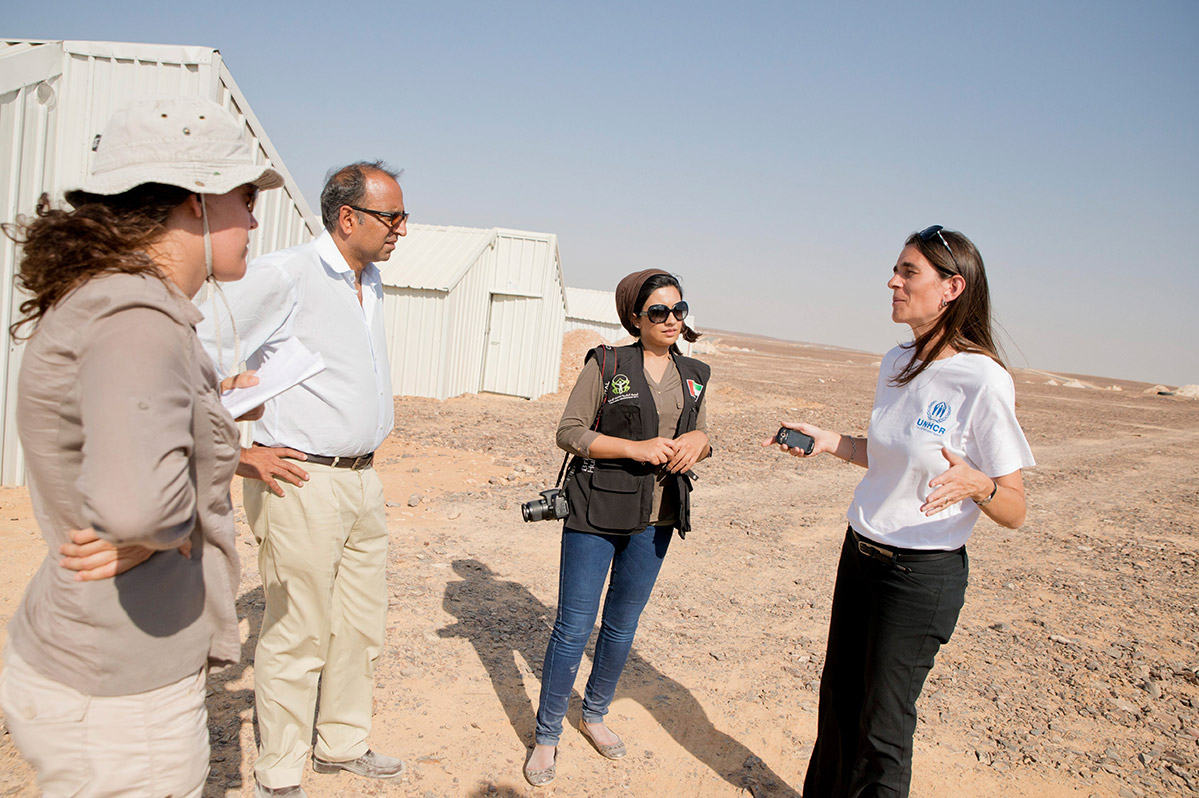
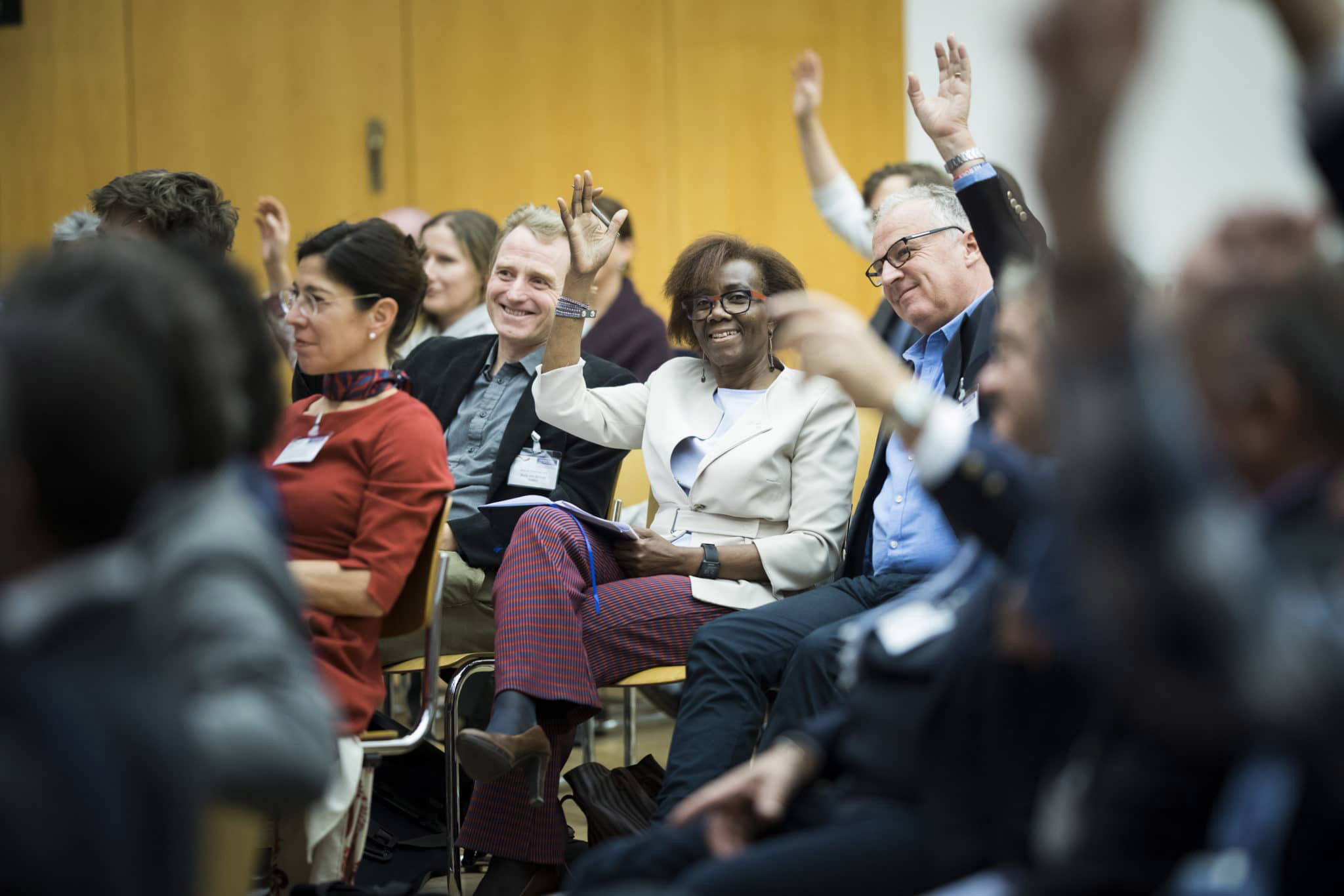

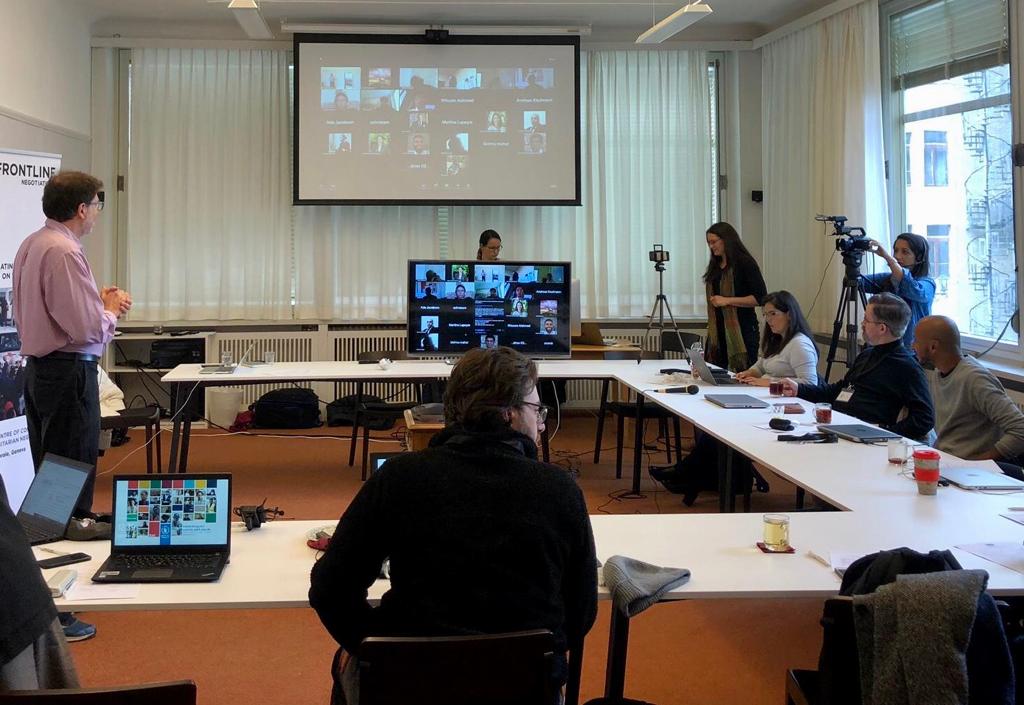
Centre of Competence on Humanitarian Negotiation
Our main activities
Quick links
© 2025 Frontline Negotiations. All rights reserved.
This panel addresses the current state of dialogue between humanitarian negotiators and armed entities, specifically to protect civilian populations.
The session will dissect the challenges encountered in these high-stakes discussions, including sanctions, political barriers, and trust deficits that hinder successful outcomes.
Through a negotiation lens, experts will explore effective strategies for breaking down these barriers, establishing common ground, and advancing civilian protection agendas.
The aim is to share insights, experiences, and good practices that can enhance the safety and security of civilians in conflict zones through improved engagement with weapon bearers.
Speakers:
Humanitarian action is guided by the principles of humanity, neutrality, impartiality, and independence. However, field realities often present scenarios where these principles may conflict with each other or with the urgent need to provide aid.
The decision-making process in these situations is intricate and fraught with moral and ethical dilemmas. Understanding the motivations and justifications behind such decisions is crucial for the evolution of humanitarian negotiation strategies and for maintaining the trust and safety of both aid workers and beneficiaries.
This panel aims to dissect the complex dynamics between adhering to humanitarian principles and confronting the harsh realities of conflict zones and crises.
Speakers:
In the past, learning opportunities in our sector were often provided through a single-agency format, driven by reasons like confidentiality and organizational specificity. However, the last decade has seen a shift towards interagency or multi-agency formats, enriching peer experiences and enhancing coordinated humanitarian efforts in the field. The Centre of Competence on Humanitarian Negotiation (CCHN) has embraced this approach, fostering a community of practice with over 8,000 members.
During this session, CCHN aims to highlight the benefits of multi-agency learning opportunities and explore ways to improve collaboration across different offerings in the sector.
Humanitarian negotiation, now recognized as a crucial competence, encompasses various soft skills such as communication, empathy, and influence. Its formalisation has led to a highly connected global community of practice, promoting peer learning and development.
Additionally, the session will commemorate the 10th anniversary of the Naivasha Grid, showcasing its impact and expansion through the community of practice in deep-field operations.
Speakers:
In this session, we will address the intersection of climate change, conflict, and humanitarian needs, focusing on negotiating for long-term solutions and resilience in vulnerable regions affected by environmental degradation.
Speakers:
Local negotiators rooted in their communities are pivotal yet often unrecognised in their contribution to resolving crises.
In this session, we will explore the intricate dynamics between ensuring the safety of humanitarian workers and the risk transfer from international to local actors within the context of negotiations, and how external actors can support local actors’ efforts without dominating.
It will address the strategies and ethical considerations involved in negotiating access, protection, and assistance while minimising associated risks for local partners.
The conversation will delve into how negotiation practices can be structured to safeguard all parties, with a special focus on the leadership of local humanitarians without transferring undue risk.
Panelists, including field experts, local negotiators, and security specialists, will share insights and debate approaches to achieving effective and safe humanitarian operations through negotiation.
Speakers:
Today, the vital role of women in diplomacy, mediation, and humanitarian negotiation is increasingly acknowledged yet underutilized.
Set against the backdrop of global crises, we explore the integration of women’s unique perspectives and strategies in these traditionally male-dominated fields.
This session seeks to identify and overcome obstacles to female participation, showcasing how gender diversity can lead to more effective and enduring solutions in peace negotiations and humanitarian interventions.
Speakers:
When humanitarian and diplomatic actors collaborate, it can lead to more comprehensive and sustainable solutions, addressing immediate needs and the underlying causes of conflicts.
This session will explore how humanitarian diplomacy can be effectively integrated into frontline negotiations. It will highlight the importance of leveraging the intersection between these two aspects of humanitarian action.
Speakers, which include frontline humanitarian negotiators and seasoned diplomats, will share experiences from their unique perspectives, providing valuable insights into collaborative problem-solving in complex situations.
Speakers:
Recording not available.
This workshop aims to equip humanitarian negotiators with strategies to increase their leverage and secure agreements when facing more powerful counterparts, such as non-state armed groups or dominant governments.
It will cover practical techniques, case studies, and psychological tactics specifically tailored for scenarios where the negotiator is at a power disadvantage.
The session will balance between exchanging expertise, storytelling, and competing in an interactive game on how humanitarians can negotiate with power.
Speakers:
Recording not available.
How are misinformation, disinformation and hate speech employed to shift leverage and power dynamics during negotiations?
Join this session to learn how to identify and neutralise digital threats, maintain the factual groundwork of negotiation scenarios, and ensure the integrity of your negotiation processes.
Speakers:
The efficiency of humanitarian response following a disaster depends on how fast coordination structures are established, supply chains are enabled, and human and financial resources are mobilised.
Negotiating in disaster contexts becomes challenging because of the many parties involved. Often, survivors are turned into first responders until traditional humanitarian response mechanisms are set up. Then, when humanitarian actors step in, it’s necessary to negotiate and coordinate the response among the multiple actors.
In 2023, the CCHN launched its research on negotiating in the context of disasters. Since then, we have conducted a series of interviews to understand field practices, produced a report and developed a thematic session with the project to expand this topic in the future.
The CCHN first started researching the topic of communities at the centre of negotiations in the framework of the Middle East Think Tank, a year-long project developed in collaboration with the Harvard Humanitarian Initiative.
A group of CCHN community members shared experiences, reviewed litterature and worked with experts from other sectors to identify the main challenges related to the topic.
The group then led focus group discussions to develop good practices and tools that support frontline workers when negotiations involve communities.
Negotiating and operating in contexts affected by gang violence requires a strategic approach. These contexts tend to be volatile, unpredictable and hard to access. Establishing clear communication lines is hindered because gangs are highly fragmented and command changes often.
Research conducted by the CCHN points towards the importance of staff continuity, the need for long-term psychological support and building trust as best strategies to operate in gang-controlled areas.
We continue to work on this topic and offer practical advice to humanitarians working in these contexts.
To assist affected populations, humanitarian professionals often carry out negotiations with the support of interpreters. Communication changes when interpreters are involved, and if the negotiator or interpreter have little experience doing this, challenges arise, and negotiation outcomes suffer.
The CCHN regularly talks to negotiators and interpreters who work together in humanitarian contexts to understand what obstacles they face and how to remove them. Since 2022, we have developed a report, guidelines and learning modules to help interpreters and negotiators improve their working relationship.
Unlike negotiators in other fields, humanitarian negotiators are often exposed to extremely stressful environments over prolonged periods of time in addition to episodic intense pressure peaks.
Research conducted by the CCHN focuses on the causes and consequences of pressure, and best practices to counter it. We have developed a programme to help humanitarians to prepare, handle and reduce pressure, and offer regular meetings to discuss this topic in our community.
Humanitarian negotiations and humanitarian diplomacy are inherently intertwined, but what differentiates them isn’t always clear. Some see humanitarian negotiations as one of the many instruments of humanitarian diplomacy, whereas others see the latter as efforts made at a “higher” level by heads of agencies, heads of state and diplomats.
The CCHN continues to investigate this link to bring more clarity and identify opportunities of synergy between the two types of negotiations.
Humanitarians working in displacement contexts negotiate with multiple counterparts, including governments, camp authorities, host communities and affected people themselves. Negotiations often take place in a politically charged environment where humanitarians operate in a legal grey zone.
Since 2020, the CCHN collects information on negotiations in displacement contexts to understand the challenges faced by humanitarians. We have developed contextual simulations, case studies and workshops to support humanitarian practitioners working in these contexts.
Negotiations around health care are distinctive. They involve not only armed actors, but patients and their families, and are often highly emotional. Humanitarian practitioners must also navigate complex public health systems while maintaining humanitarian principles.
At the request of humanitarian professionals, the CCHN launched its research on the topic of healthcare and negotiations in 2019. Since then, we have developed negotiation workshops and case studies tailored to health care contexts, as well as a learning module on how to de-escalate a tense situation.
Protection remains one of the most challenging humanitarian outcomes to negotiate. It’s considered a “sensitive, abstract, non-priority, and controversial” topic by most humanitarians. This lack of consensus is what makes protection negotiations particularly difficult.
Together with its community, the CCHN has identified common challenges and best practices when negotiating protection outcomes. Out of this research, we developed a negotiation workshop on protection, simulations and a thematic group.
Private military companies, state militaries, government forces and armed groups are some of the most common counterparts humanitarians negotiate with.
These actors, however diverse, follow their own values, beliefs, honour codes and hierarchies. Understanding what makes them tick is key to building trust and negotiating effectively.
At the CCHN, we conduct research on how to best engage with state- and non-state armed groups and make it available for the wider humanitarian community through webinars, thematic sessions and publications.
Negotiating for safe and durable access often feels unstructured and speculative. Working conditions for humanitarian agencies can be difficult, local authorities may not be open to collaboration, and the compromise humanitarian practitioners achieve may not be appropriate to respond to humanitarian needs. So, how do humanitarians gain safe access?
The CCHN conducts research on humanitarian access negotiations. Our work aims to understand how humanitarians gain trust, establish guarantees and evaluate the impact of compromises. We collect best practices and lessons learned and share them during our workshops and in our publications.
Since 2018, the CCHN has investigated the impact of diversity in humanitarian negotiations.
Humanitarian practitioners at different managerial levels have shared their views in how their identity and their counterpart’s identity influenced negotiations they have conducted.
Experiences vary, but most humanitarians explained that during negotiations they stress specific elements of their identity, skills, and background — playing up those that allow them to establish a rapport more easily with their counterparts, and downplaying those that are perceived to be detrimental.
To continue the conversation around diversity, we regularly organise informal discussions to collect experiences, impressions and insights and bring back our findings to the community.
The CCHN supports humanitarian agencies in expanding their internal negotiation capacity by providing bespoke learning and development support for all staff members.
…you are looking to strengthen staff members’ negotiation skills within your organisation.
…you would like your internal negotiation training to be informed by recent research and by the practice of hundreds of humanitarian professionals working around the globe.
The CCHN can support your internal Learning department in the design of a specific curriculum (either ad-hoc or permanent), based on our methodology and in line with your agency’s current challenges and learning strategy.
The curriculum may take a peer-to-peer online/onsite format, or it may be an individual experience through e-learning materials and self-learning.
We provide the requesting agency with access to the complete CCHN learning methodology. Alternatively, we embed learning sessions based on our methodology in an existing learning programme delivered by the agency.
We also support your agency in responding to specific challenges through tailored learning content with a thematic or regional focus.
Any humanitarian agency or learning institution.
English, French, Spanish and Arabic.
Please contact us to obtain more information and a tailored proposal.
We support humanitarian agencies or field teams by advising them on negotiating access and protection based on our analytical tools and policy work.
…you are looking for tailored guidance navigating a complex humanitarian scenario.
…you wish to be supported in the application of CCHN’s strategic tools to your local challenges.
The CCHN provides different levels of advisory support.
Level 1 – Bilateral technical support. We provide guidance to community members and partner organisations through the expertise of CCHN staff and specialised consultants.
Level 2 – Specialised research and policy response. The CCHN’s Research and Development team will provide in-depth analysis and guidance, in collaboration with the Operations team and selected members of our community of practice.
Level 3 – Direct advisory support. You will be supported by a CCHN Mobile Advisory Team comprising our internal operational capacity as well as external resources.
Any humanitarian agency or learning institution.
English, French, Spanish and Arabic.
Please contact us to obtain more information and a tailored proposal.
Discover state-of-the-art negotiation tools, apply them to your own negotiations, and critically reflect with peers while contributing to the advancement of research.
… you would like to “deep dive” into CCHN negotiation tools learned during Peer Workshops, Advanced Humanitarian Negotiation Workshops or Thematic Sessions.
… you are testing and practising these tools in your daily professional life and engaging in critical reflection about the tools and your practice with peers and with potential support of CCHN mentors.
…you wish to be among the first to test and validate innovative negotiation tools that have been recently developed by CCHN researchers and community members.
…you are available and committed to joining at least three Negotiation Lab sessions.
Negotiation Labs are critical discussions and exchanges among field practitioners around existing or pilot tools and models that have been recently elaborated by CCHN researchers or by community members in the context of Thematic Groups. Labs may be co-facilitated by CCHN mentors and other selected members of the CCHN community with extensive humanitarian experience and excellent knowledge of CCHN tools.
You will have the opportunity to test the tools, apply them in your negotiations and provide feedback for further development, while also supporting ongoing research efforts.
You should have previously attended a CCHN Peer Workshop or Executive Programme.
English, French, Spanish and Arabic.
Negotiation Labs are organised in small groups, based on demand, over three to five sessions. They take place online and include three to five participants.
You will not receive a certificate for this activity.
Negotiation Labs are organised on demand.
Join other humanitarian practitioners and mental health experts over the course of a few days and strengthen your capacity to prepare, manage and recover from high-pressure negotiations.
…you are seeking a safe and confidential space to discuss with other humanitarian professionals about the personal challenges and dilemmas of negotiating under pressure or in high-risk contexts.
…you wish to explore the latest tools and methods to identify, manage and cope with stress in complex environments.
…(for retreats aimed at training facilitators) you are willing to facilitate similar activities in the future and to organise additional ones in your region.
Retreats will provide you with a safe environment to exchange and new techniques to better prepare, manage, and recover from high-pressure situations. You will learn how to build your resilience and support colleagues facing personal, ethical, and professional dilemmas.
Among the topics tackled during retreats are the mental, emotional and physical dimensions of pressure management and self-care as well as the “before”, “during” and “after” of negotiating under pressure.
You should have previously attended a CCHN Peer Workshop or Executive Programme.
Retreats are particularly suitable for community members with a strong interest in the CCHN’s mental health and pressure management activities.
Some retreats aim to train new facilitators, providing them with the tools to organise their own workshops. In this case, you should have completed a Training of Facilitators and have a strong interest in the topic of resilience in negotiation under pressure. You should have the commitment and resources to organise at least two sessions / series of sessions / a retreat in your local context within the 12 months following the training.
English, French or Spanish; additional languages may be available for self-organised workshops, depending on the context where the retreat takes place.
Retreats take place in person. They typically last five days (some parallel activities may take place online for the wider community). They feature group discussions and exercises.
Retreats include a maximum of 25 participants. In-person participants should be able to cover flight expenses and visa fees.
Yes. Those who attend the event in its entirety receive a Certificate of Completion.
Visit the special events calendar reserved for CCHN community members and sign up online for the next event.
Learn helpful techniques to become more resilient to pressure during high-stakes negotiations and provide similar support to the members of your team.
…you wish to learn techniques to better prepare, manage, and cope with high-pressure negotiations.
…you feel a need to share and exchange confidentially about issues relating to mental health and self-care during negotiation processes.
…you would like to become more resilient and prevent the negative impact of pressure in the future.
…you are planning to use self-management tools to support your team members through complex negotiations.
The “Prepare for Pressure” programme will help you better understand your behaviour, master your emotions, and learn methods to reduce the impact of pressure during high-stakes negotiations.
You should have previously attended a CCHN Peer Workshop or Executive Programme.
The workshop is provided regularly in English, French and Spanish.
The workshops, facilitated by expert pressure management consultants, take place online and are based on the sharing of the participants’ experiences. They include breathing and other body exercises.
The programme is composed of four modules lasting 10 hours in total. Workshops are normally organised every two months. Each event features a maximum of 25 participants.
Yes. Those who attend the event in its entirety receive a Certificate of Completion.
Visit the special events calendar reserved for CCHN community members and sign up online for the next event.
Create a one-on-one relationship with another humanitarian professional within the CCHN community. Learn from and with a colleague who understands your negotiation context in a safe space for exchange and reflection.
… you are currently negotiating at the frontlines of humanitarian action.
… you are looking for ways to strengthen your negotiation skills while discussing your own experience.
… you would like to connect with other professionals while stimulating reflection, critical thinking, exchange of ideas, and brainstorming.
Mentors expand their negotiation expertise while developing soft skills like active listening, critical thinking, and providing feedback.
Mentees gain access to a safe, confidential space of reflection and exchange with an experienced peer negotiator.
Both mentors and mentees should have previously attended a CCHN Peer Workshop or Executive Programme.
Mentors join the programme upon invitation, depending on the skills and expertise they demonstrate. They attend an onboarding workshop before becoming listed in the CCHN mentors’ database.
Mentees can join the programme by submitting an online application. The CCHN team provides them with guidance so they can fully take advantage of the mentoring relationship.
Training and onboarding materials are available in English, French and Spanish; however, the mentoring exchanges can take place in any language shared by the mentor and mentee. The mentors currently available in our database collectively speak more than 80 languages.
Before entering a mentoring relationship, mentors attend an onboarding workshop where they learn about mentoring practices and skills including structuring a mentoring relationship, active listening and providing feedback. They later practice these skills during role-play simulations.
Mentees who apply gain access to the CCHN mentoring database, where they can autonomously select and contact the mentor(s) whose profile or expertise best matches their needs. The one-on-one relationship between a mentee and a mentor takes place privately and confidentially according to the participants’ preferences.
The CCHN organises “Mentoring Coffee” events twice per month. All participants are welcome to attend and discuss mentoring practices as a group.
The mentors who attend an onboarding workshop in its entirety receive a Certificate of Completion.
Mentees do not receive a certificate.
Contact us if you are interested in becoming a mentee.
Join an informal, regular gathering of humanitarian professionals to discuss a specific negotiation challenge and produce practical guidance for humanitarian colleagues.
…you’re looking to receive practical guidance from other frontline negotiators on your operational challenges.
… you are committed to working with other community members towards developing concrete tools, guidelines, or frameworks that can support humanitarian practitioners.
…you wish to discuss with experts and researchers, engage yourself in operational research, create space for discussion, and think outside the box to find creative solutions to shared challenges.
… you can commit to attending periodic discussions around the group’s topic.
You should have previously attended a CCHN Peer Workshop or Executive Programme. You should be committed to developing a particular topic related to humanitarian negotiation.
English or any other language depending on the preference of the group.
Thematic group meetings take place online at regular intervals (typically every 4-6 weeks).
Thematic groups are informal exchanges, and you will not receive a certificate for this activity.
Visit the special events calendar reserved for CCHN community members and sign up online for the next event.
Informal but structured group discussions around a specific negotiation angle or context, either online or in person.
…you’re looking for an informal group exchange on a certain challenge relating to humanitarian negotiations.
…you wish to rely on the support of a global network to help you plan and carry out future humanitarian negotiations.
Anyone who has previously attended a CCHN Peer Workshop or Executive Programme.
Arabic, English, French, or Spanish depending on the geographical focus of each event.
Peer circles may take place online or in connection with in-person events.
Their length varies depending on the theme; online events typically last one to two hours. Each event has an average of 20 participants.
Peer circles are informal exchanges; you will not receive a certificate for this activity.
Visit the special events calendar reserved for CCHN community members and sign up online for the next event.
Test your negotiation skills in a realistic scenario and put your knowledge of the CCHN tools into practice.
…you would like to test your understanding of the negotiation tools and methods learned during previous workshops.
…you are looking to strengthen your problem-solving skills through roleplay and better prepare for your next negotiation.
Anyone who has previously attended a CCHN Peer Workshop or Executive Programme.
Arabic, English, French, or Spanish.
Simulations can take place either in person or online, with the use of virtual interactive boards. They are usually organised as a complement to a Peer Workshop or another learning activity.
A simulation lasts between two and four hours and features a maximum of 30 participants.
Yes. Those who attend the event in its entirety receive a Certificate of Completion.
Visit the special events calendar reserved for CCHN community members and sign up online for the next event.
Become a CCHN workshop facilitator and help other humanitarian professionals strengthen their negotiation skills while benefitting from their collective expertise. Take your engagement in the CCHN Community of Practice to the next level and lead Peer Workshops for your team or for the wider humanitarian community, with support from the CCHN.
…you are interested in learning facilitation techniques that are applicable across different domains.
…you would like to benefit from the expertise of frontline negotiators sharing their own experience and practice.
…you wish to share your learning on humanitarian negotiation with members of your organisation or other professionals across the sector.
… you are available to facilitate CCHN Peer Workshops both online and onsite.
You will learn facilitation techniques to guide other humanitarian professionals in applying the negotiation methodology developed by the CCHN.
The topics discussed include active listening, effective communication, storytelling and delivering presentations without making use of PowerPoint.
At the end of the training, you will be able to facilitate CCHN Peer Workshops, including by using case studies and simulation exercises.
Active CCHN facilitators gain access to dedicated learning and sharing opportunities, including the Facilitators Annual Meeting.
You should have previously attended a CCHN Peer Workshop as an engaged participant. You should demonstrate a very good understanding of the CCHN negotiation tools and commitment to share your learning with other professionals.
Arabic, English, French, or Spanish.
Trainings of Facilitators are available both online and in person. Online workshops include four sessions lasting two hours each and welcome a maximum of 25 participants; they focus on building facilitation skills for online events.
In-person workshops last four full days and welcome a maximum of 15 participants. They are aimed at building skills to facilitate in-person events.
Once you complete the training, you will be invited to join Peer Workshops as a facilitator.
Yes. Those who attend the workshop in its entirety and consequently facilitate at least one Peer Workshop will receive a Certificate of Completion.
Visit the special events calendar reserved for CCHN community members and sign up online for the next event.
Advanced Humanitarian Negotiation Workshops offer participants an opportunity to consolidate their previous learning while acquiring advanced skills and tools to plan, manage or evaluate humanitarian negotiations. You will dive deeper into the behavioral aspects of negotiation through CCHN tools, putting them into practice in context-specific scenarios.
…you took stock of the negotiation tools and strategies discovered during a Peer Workshop and feel the need of more solid or in-depth grounding.
… you are interested in advanced and more complex tools to plan and evaluate your negotiations and critically reflect about your current practice.
… you wish to improve your negotiations and communication skills, experimenting and learning from mistakes.
…you are a mid- or senior-level humanitarian professional carrying out regular negotiations at the frontlines.
Advanced Humanitarian Negotiation Workshops tackle different topics over four days:
A negotiation simulation completes the workshop on the fourth day. The Advanced Humanitarian Negotiation Workshop is based on the sharing of the participants’ negotiation experience and simulations. You will be asked to (confidentially) share your negotiation stories with the group as a basis for joint discussion and exercises.
You should have previously attended a CCHN Peer Workshop or Executive Programme. You should also have several years of experience negotiating in the field.
English, Spanish and French – with the possibility of live interpretation into other languages.
Advanced Humanitarian Negotiation Workshops may take place online or in person. In-person workshops last for three or four full days, welcoming 16-20 participants. Online workshops can be organised on demand.
Yes. Those who attend the event in its entirety receive a Certificate of Completion.
Visit the special events calendar reserved for CCHN community members and sign up online for the next event.
Applied Negotiation Workshops help humanitarian professionals develop additional skills to plan and carry out negotiations in specific contexts or around particularly challenging operational topics. Participants are introduced to context-tailored methods, tools and case-studies based on the latest CCHN research and on humanitarian practice.
… you’re seeking to consolidate your previous learning from attending a Peer Workshop.
…you wish to acquire advanced skills and tools to plan and evaluate humanitarian negotiation and issue a mandate.
…you are a mid- or senior-level humanitarian professional carrying out regular negotiations at the frontlines.
Applied Negotiation Workshops tackle different topics over three days:
You should have previously attended a CCHN Peer Workshop or Executive Programme. You should also have several years of experience negotiating in the field.
English, Spanish and French – with the possibility of live interpretation into other languages.
In-person workshops last for three full days. They feature 16- 20 participants.
Yes. Those who attend the event in its entirety receive a Certificate of Completion.
Visit the special events calendar reserved for CCHN community members and sign up online for the next event.
A successful negotiation does not only rely on the tools and strategies applied; it also depends on how the negotiator interacts with the counterpart. Learn how to develop negotiation skills including communication, self-awareness, emotional intelligence, and conflict management.
… you wish to become more aware of how your behaviour and body cues may affect the outcome of a negotiation.
…you’d like to discover additional approaches helping to build a relationship of trust with a counterpart.
Each workshop is divided into four sessions, respectively focusing on:
Anyone who has previously attended a CCHN Peer Workshop or Executive Programme.
Arabic, English, French, or Spanish depending on the geographical focus of each event.
Soft skills workshops are usually delivered online over the course of two days; they include roleplay and simulations. They are often organised in connection with another in-person workshop. Each event welcomes an average of 20 participants.
Yes. Those who attend the event in its entirety receive a Certificate of Completion.
Visit the special events calendar reserved for CCHN community members and sign up online for the next event.
A first step into your CCHN learning pathway and an opportunity to join a global community of humanitarian negotiators. Peer Workshops provide you with knowledge of fundamental negotiation tools which are essential to plan, carry out and evaluate field negotiations. This knowledge will come in handy as you expand your negotiation expertise and prepare for more advanced workshops. Completing a Peer Workshops is a pre-requisite to join the CCHN community of practice and to attend other CCHN learning activities.
…you want to gain a fundamental understanding of negotiation tools and methods, share your negotiation experience and learn from others, connect with frontline negotiators in your region or around a specific topic, and set the foundation to attend more advanced workshops in the future.
You will also discover some basic techniques to de-escalate a high-tension situation. You will then put your new learning into practice during a simulation exercise at the end of the workshop.
You should be a humanitarian professional with a minimum of three years of negotiation experience in a field context. Peer Workshops are open to both national and international staff of humanitarian organisations.
Arabic, English, French, Spanish or Portuguese, depending on the regional focus of each workshop. Learning materials can be translated into additional languages.
Peer Workshops are based on the sharing of the participants’ negotiation experiences. You will be invited to (confidentially) share your own stories with the group as a basis for joint discussion and learning.
Online workshops include six sessions, each lasting two hours (10 hours in total), taking place over the course of either three or five days.
In-person workshops are held over three full days and may feature additional thematic sessions.
The CCHN will accept a maximum of 30 people for in-person workshops and a maximum of 50 people for online workshops.
Yes. Those who attend the event in its entirety receive a Certificate of Completion.
Visit our public events calendar to discover which of our upcoming workshops is most relevant for you, then submit your application online.
An interactive and confidential safe space for humanitarian decision-makers and senior management to share complex negotiation experiences and better lead negotiation teams as they navigate relationships with difficult counterparts. Completing the Executive Programme allows access into the CCHN community of practice as well as other advanced learning opportunities.
…you are a decision-maker within a humanitarian agency (Country Representative, Country Director, Deputy Director or equivalent level) and act as the mandator in frontline negotiation processes.
…you wish to strengthen your leadership in guiding your agency’s negotiation teams.
…you wish to build advanced negotiation skills in complex environments while becoming part of a professional network of senior managers.
The Executive Programme makes use of practical exercises, peer exchanges and simulations to encourage learning around the following topics:
Seasoned humanitarian managers currently covering a Country Director, Deputy Director, or equivalent role.
English
Executive Programme workshops are usually held in person over the course of three days. However, different formats may be available upon request.
Each event welcomes an average of 30 participants.
Yes. Those who attend the event in its entirety receive a Certificate of Completion.
Visit our public events calendar to discover which of our upcoming workshops is most relevant for you, then submit your application online.
Executive Programme workshops are usually held in person over the course of three days. However, different formats may be available upon request. Each event welcomes an average of 30 participants.
…you want to take a closer look at a specific topic or challenge you face as part of your negotiation processes and receive practical guidance from other professionals.
Thematic sessions are based on CCHN research and on the sharing of the participants’ negotiation experiences. We select operational themes or contexts and tailor the session around them.
Some of the topics we tackled in previous thematic sessions include: negotiating humanitarian access and corridors in sensitive contexts, negotiating with the help of interpreters, managing mis- and disinformation in humanitarian contexts, negotiating with armed groups, negotiating in the context of protection or healthcare operations.
Anyone who has previously attended a CCHN Peer Workshop or Executive Programme.
Arabic, English, French, or Spanish depending on the geographical focus or topic of each session.
Thematic sessions may take place either online or in person. Length varies depending on the theme discussed. Each session has an average of 30 participants.
No, you will not receive a certificate for this activity.
Visit the special events calendar reserved for CCHN community members and sign up online for the next event.
A first step into your CCHN learning pathway and an opportunity to join a global community of humanitarian negotiators. Peer Workshops provide you with knowledge of fundamental negotiation tools which are essential to plan, carry out and evaluate field negotiations. This knowledge will come in handy as you expand your negotiation expertise and prepare for more advanced workshops. Completing a Peer Workshops is a pre-requisite to join the CCHN community of practice and to attend other CCHN learning activities.
You will also discover some basic techniques to de-escalate a high-tension situation. You will then put your new learning into practice during a simulation exercise at the end of the workshop.
Online workshops include six sessions, each lasting two hours (10 hours in total), taking place over the course of either three or five days.
In-person workshops are held over three full days and may feature additional thematic sessions.
The CCHN will accept a maximum of 30 people for in-person workshops and a maximum of 50 people for online workshops.
Each event welcomes an average of 30 participants.
